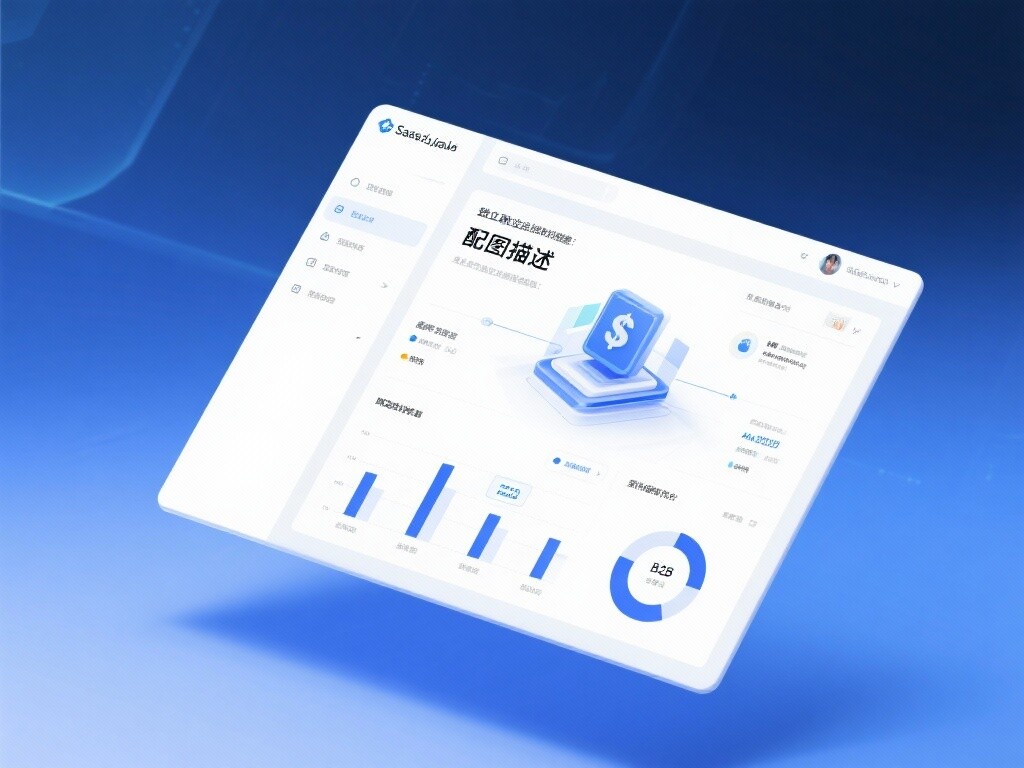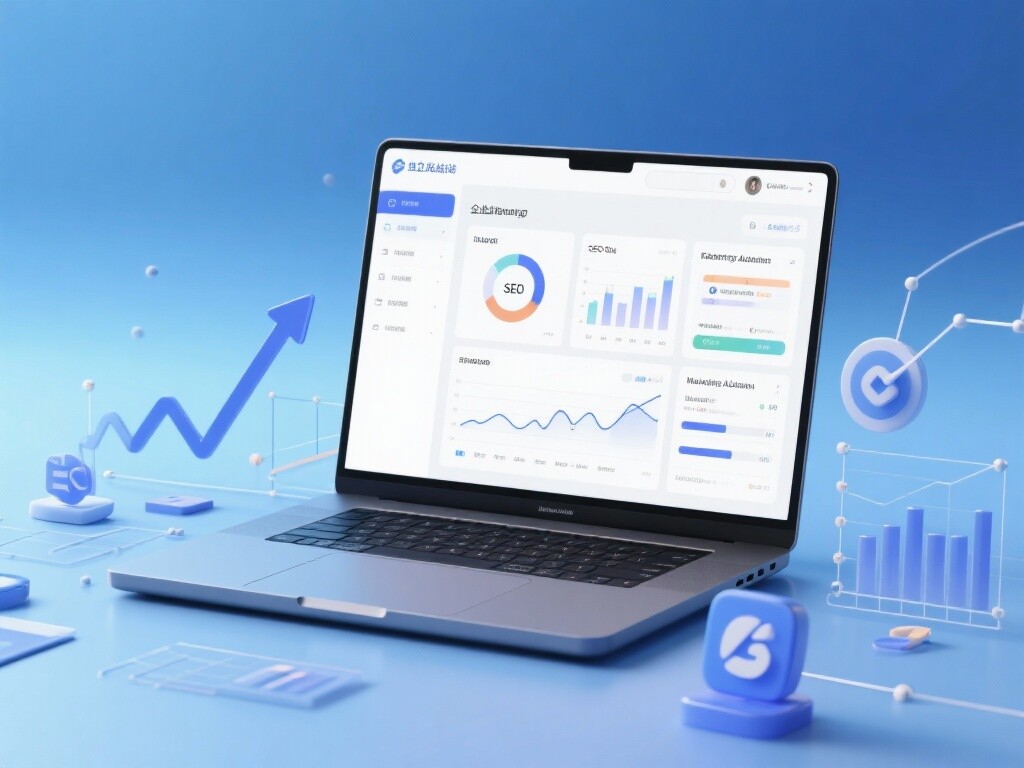Definition of Independent Website: A Brand-Exclusive Digital Asset with Full Control
An Independent Website (Independent Website / Self-hosted Site) refers to a website where a business or individual owns the domain name, source code, and full data control rights, and independently chooses hosting or platform services for operation.
The key difference between it and "platform stores" (such as Amazon, Etsy, Taobao) lies in: control rights and data ownership.
Core Differences Between Independent Websites and Platform Stores:
The Essence of Independent Website Building: Establishing a long-term, accumulable brand asset to achieve sustainable, high-margin business growth.
History of Independent Website Development: From Technical Customization to Democratized SaaS Platforms
The history of independent websites reflects the evolution of internet technology from being highly specialized to becoming commercially accessible, significantly lowering the barriers to global e-commerce.
1. Early Stage: CGI/PHP Scripts and High Customization (1990s-2005)
Technical Features: Websites and e-commerce functionalities primarily relied on raw CGI/PHP scripts and databases for custom development.
Barriers: Extremely high technical barriers, requiring specialized full-stack engineers, with high costs, making it suitable only for large enterprises.
2. The Rise of Open-Source CMS (2003-2012):
Milestones: WordPress.org, Magento, Joomla and other open-source CMS platforms matured.
Impact: Through themes and plugins, non-technical users could perform basic setups. However, users still needed to resolve hosting, security, and system updates independently.
3. The SaaS E-Commerce Platform Revolution (2012-Present):
Technical Core: The explosion of SaaS (Software as a Service) platforms like Shopify, which bundled website building, hosting, security, and payment integration into all-in-one solutions.
User Experience: Greatly reduced technical and operational barriers, enabling SMEs and individual sellers to quickly build professional independent websites and enter global markets.
Trend: Independent website building has entered an era of "platformization" and "simplification", focusing more on marketing and content.
4. Cross-Border E-Commerce and DTC Brand Boom (Present):
Drivers: The maturity of social media traffic (Facebook Ads, TikTok) and efficient logistics systems.
Value Highlight: Independent websites have become the core battleground for DTC (Direct-to-Consumer) brands, leveraging data to achieve brand premium and user repurchase.
Technical Principles of Independent Website Building: Dual-Track System and Data Assetization
Independent website building is primarily based on two technical paths: "self-hosted CMS" and "SaaS platforms", but its core value lies in data assetization.
1. Two Main Technical Paths for Independent Websites
2. Data Assetization and Tracking Technologies
The core value of independent websites is data ownership, which relies on key tracking tools:
Pixel/Tag Deployment: Deploy Google Analytics Tag, Meta Pixel, etc., in the website code to accurately track user browsing, cart additions, and purchasing behavior.
Conversions API (CAPI): Deploy server-side tracking to ensure accurate and complete conversion data feedback to ad platforms under strict privacy policies (e.g., iOS restrictions), maintaining ad efficiency.
3. Performance and SEO-Friendly Architecture
Successful independent website building requires high performance and SEO friendliness:
Host Optimization: Whether self-hosted or SaaS, both require CDN (Content Delivery Network) acceleration and high-performance hosting to meet Core Web Vitals speed requirements.
Structured Data (Schema): Deploy Schema Markups on product, review, and pricing information to help search engines understand content and achieve rich media search results (e.g., product star ratings).
Core Features and Business Advantages of Independent Website Building
Independent websites provide not just a sales channel but a brand growth ecosystem.
1. Unlimited Brand Customization and User Experience Control
Features: The website's design, functionality, interaction, and user experience (UX) are entirely determined by the brand.
Advantages: Enables unique brand identity, enhancing user trust and purchase intent, achieving brand premium.
2. Owning Customer Data for Precision Remarketing
Features: All visitor data, purchase history, emails, phone numbers belong exclusively to the independent website.
Advantages: Enables granular email marketing, remarketing ads, and LTV (Lifetime Value) analysis, significantly improving customer repurchase rates.
3. High SEO Friendliness and Sustainable Free Traffic
Features: Independent websites allow deep SEO optimization of URLs, titles, H tags, content clusters, etc.
Advantages: Continuously attracts free, precise, high-intent organic search traffic from Google, building long-term traffic assets.
4. Flexible Pricing, Promotions, and Payment Methods
Features: Independently decide discounts, bundling, membership pricing and freely choose payment gateways (e.g., Stripe, PayPal, local payments).
Advantages: Avoids platform restrictions, enabling quick adjustments to marketing strategies based on market changes and selecting the lowest-fee payment channels.
Deep Applications and Strategic Deployment of Independent Website Building
Independent websites are strategic cores for realizing DTC models, enhancing brand influence, and achieving global sales.
1. The Foundation of DTC Brand Models
Application: Independent websites are the sole touchpoint for DTC brands to directly engage with consumers.
Value: Collects customer feedback, maintains communities, and conveys brand stories, bypassing intermediaries for higher margins and stronger brand loyalty.
2. Synchronized Globalization and Localization
Application: Leverage independent websites' multilingual, multi-currency, multi-region logistics configurations to quickly enter global markets.
Value: Through localized design and marketing, provides tailored shopping experiences for users in different countries, improving global conversion rates.
3. Content Marketing-Driven Traffic Growth
Application: Use the blog/content module of independent websites as the main traffic entry, creating long-tail keyword content clusters around user pain points solved by products.
Value: Leverages SEO to capture top-of-funnel (Tofu) traffic, educating customers through content and ultimately guiding them to product pages for conversion.
4. Marketing Automation and Customer Lifecycle Management
Application: Integrate CRM and email marketing tools (e.g., Klaviyo) to automate personalized outreach for new visitors, abandoned carts, and existing customers.
Value: Effectively recovers abandoned carts, stimulates repurchases, improves satisfaction, and maximizes customer lifetime value (LTV).
EasyProfit: Your Independent Website Building and Growth Acceleration Expert
EasyProfit's independent website building services are systematic engineering based on the principles of "data ownership, high-conversion design, and SEO-driven growth". We help you choose the best technical path and embed growth factors from the outset.
Platform Selection and Technical Path Planning: Based on your business scale, product features, and technical capabilities, recommend and deploy the most suitable platform (e.g., Shopify/WooCommerce).
High-Conversion UX/UI Design and Customization: Design interfaces focused on conversion rate optimization (CRO), ensuring brand aesthetics and smooth user shopping flows.
Full-Funnel Data Tracking Deployment: Deploy Meta Pixel/Tag Manager and key Conversions API (CAPI) to ensure precise ad attribution and data feedback.
SEO-Friendly Architecture and Content Clusters: Optimize URL structures, sitemaps, and product categories during setup, preparing for SEO rankings.
Post-Launch Growth Acceleration: Provide launch strategies combining social ads (Meta Ads/TikTok) and SEO content marketing for rapid traffic acquisition and conversion.
Choose EasyProfit to make your independent website building a high-efficiency, high-starting-point, high-return strategic business investment.
FAQ
1. Is it better to choose a SaaS platform (like Shopify) or a self-hosted CMS (like WooCommerce) for building an independent website?
This depends on your needs and resources:
SaaS (recommended for most people): Fast setup, low maintenance, and centralized features. Suitable for startups and individual sellers who focus on marketing and lack a technical team. The downside is limited customization.
Self-hosted CMS: Full control over code and unlimited customization. Suitable for mature businesses with a technical team that require highly customized features or focus on content marketing. The downside is complex maintenance and self-responsibility for security.
2. After building an independent website, how to solve payment and logistics issues for cross-border e-commerce?
Payment: Most SaaS platforms and CMS plugins support integration with international payment gateways (such as Stripe, PayPal). You only need to apply for the corresponding accounts and configure them.
Logistics: You can achieve automatic freight calculation, label printing, and package tracking through logistics interface integration (such as YunExpress, Yanwen). Independent websites offer great flexibility and can connect with various third-party logistics tools.
3. What exactly does the "data asset" of an independent website refer to, and how to utilize it?
Data assets mainly include customer identification information, behavioral data, and purchase history.
Ways to utilize:
Remarketing: Send abandoned cart emails or place remarketing ads (high conversion rate) to users who "added to cart but didn’t pay".
LTV analysis: Analyze the characteristics of high-value customer groups to guide product development and ad audience targeting.
Create Lookalike Audience: Upload high-value customer data to Meta/Google and let AI find potential customers with similar characteristics.
4. What are the differences between SEO optimization priorities for independent websites and platform stores?
SEO optimization for independent websites is comprehensive and has greater potential.
Platform stores: Optimization is limited to titles, product page descriptions, etc., and the ranking authority belongs to the platform’s domain.
Independent websites: You can control all SEO factors: Core Web Vitals speed optimization, custom URL structure, H tags, internal links, content clusters, Schema structured data, etc. Greater optimization potential allows you to build independent topic authority.

Customer Reviews
Mr. Yuan, Founder of a DTC pet product brand
"We used to heavily rely on Amazon, but the commissions were high, and rules changed frequently. The EasyStore team built us a Shopify independent website and integrated CAPI, ensuring accurate attribution for our Facebook ads. Most importantly, they guided us in content cluster SEO optimization based on the independent website. Now, our independent website contributes 40% of sales from organic search traffic, and customer repurchase rates increased by 25% through email automation. The independent website truly lets us control our own destiny and profits."
Ms. Shang, Market Director of a B2B industrial parts supplier
"As a traditional B2B company, we needed a highly customized independent website to showcase our complex product lines. EasyStore chose a WooCommerce + high-performance hosting self-hosted solution and performed in-depth technical SEO optimization. They redesigned our information architecture, ensuring clear SEO rankings for thousands of products. Now, our independent website receives high-value inquiries from around the world daily, and the website’s professionalism and brand authority are widely recognized in the industry."
![Foreign trade whites make millions of dollars a month: Google + Yandex + Facebook combination punch through the global market? Foreign trade whites make millions of dollars a month: Google + Yandex + Facebook combination punch through the global market?]() Foreign trade whites make millions of dollars a month: Google + Yandex + Facebook combination punch through the global market?How can a new foreign trader earn a million a month through the combination of "Google+Yandex+Facebook"? Mastering multi-platform marketing and localization strategies is the key.
Foreign trade whites make millions of dollars a month: Google + Yandex + Facebook combination punch through the global market?How can a new foreign trader earn a million a month through the combination of "Google+Yandex+Facebook"? Mastering multi-platform marketing and localization strategies is the key.![Complete Guide to Overseas Promotion Channels: Which Approach Best Suits Your Business? Complete Guide to Overseas Promotion Channels: Which Approach Best Suits Your Business?]() Complete Guide to Overseas Promotion Channels: Which Approach Best Suits Your Business?This article is authored by Easy Treasure’s decade-long export service expert team. Based on operational data from over 100,000 enterprises, it analyzes and compares input-output ratios across channels such as search engines, social media, and KOL marketing, with a focus on providing cost-effective solutions for SMEs. The guide also details how to establish a sustainable overseas traffic growth engine through multilingual website development and global SEO optimization systems.
Complete Guide to Overseas Promotion Channels: Which Approach Best Suits Your Business?This article is authored by Easy Treasure’s decade-long export service expert team. Based on operational data from over 100,000 enterprises, it analyzes and compares input-output ratios across channels such as search engines, social media, and KOL marketing, with a focus on providing cost-effective solutions for SMEs. The guide also details how to establish a sustainable overseas traffic growth engine through multilingual website development and global SEO optimization systems.![Localization Support: The Secret Weapon for High Conversion of Independent Foreign Trade Websites Localization Support: The Secret Weapon for High Conversion of Independent Foreign Trade Websites]() Localization Support: The Secret Weapon for High Conversion of Independent Foreign Trade WebsitesThis article deeply analyzes the key impact of localization services on the conversion of independent foreign trade websites, combining practical cases from Easyynab AI intelligent website building system to showcase a complete localization solution ranging from language adaptation to payment settlement and customer service systems.
Localization Support: The Secret Weapon for High Conversion of Independent Foreign Trade WebsitesThis article deeply analyzes the key impact of localization services on the conversion of independent foreign trade websites, combining practical cases from Easyynab AI intelligent website building system to showcase a complete localization solution ranging from language adaptation to payment settlement and customer service systems.![AI-Driven Marketing Platform: The New Trend in Future Marketing? AI-Driven Marketing Platform: The New Trend in Future Marketing?]() AI-Driven Marketing Platform: The New Trend in Future Marketing?This article provides a detailed analysis of the three core functional modules of AI-driven marketing platforms: How intelligent website systems achieve 40% faster loading speeds; How AI ad managers reduce 50% labor costs through creative factory models; And how localized service networks ensure compliant operations in overseas markets. It also offers key evaluation dimensions for businesses selecting marketing platforms.
AI-Driven Marketing Platform: The New Trend in Future Marketing?This article provides a detailed analysis of the three core functional modules of AI-driven marketing platforms: How intelligent website systems achieve 40% faster loading speeds; How AI ad managers reduce 50% labor costs through creative factory models; And how localized service networks ensure compliant operations in overseas markets. It also offers key evaluation dimensions for businesses selecting marketing platforms.![Global SEO-Optimized Website System: Make Your Site Visible Worldwide Global SEO-Optimized Website System: Make Your Site Visible Worldwide]() Global SEO-Optimized Website System: Make Your Site Visible WorldwideThis article provides an in-depth analysis of the core features and technical advantages of EasyCommerceTech's global SEO-optimized website system, covering AI-powered website building, multilingual adaptation, SEO optimization frameworks, and overseas marketing channels. It offers enterprises a one-stop solution for global digital marketing.
Global SEO-Optimized Website System: Make Your Site Visible WorldwideThis article provides an in-depth analysis of the core features and technical advantages of EasyCommerceTech's global SEO-optimized website system, covering AI-powered website building, multilingual adaptation, SEO optimization frameworks, and overseas marketing channels. It offers enterprises a one-stop solution for global digital marketing.![Free website building solutions: How can SMEs start with low costs? Free website building solutions: How can SMEs start with low costs?]() Free website building solutions: How can SMEs start with low costs?This article provides a detailed analysis of how SMEs can utilize free website building tools to achieve low-cost digital transformation, covering multilingual site construction, SEO optimization, and global traffic acquisition strategies, while offering practical solutions powered by EasyYunbao's AI website building system.
Free website building solutions: How can SMEs start with low costs?This article provides a detailed analysis of how SMEs can utilize free website building tools to achieve low-cost digital transformation, covering multilingual site construction, SEO optimization, and global traffic acquisition strategies, while offering practical solutions powered by EasyYunbao's AI website building system.![The Era of Multilingual SEO: Paving the Way for the Internationalization of Foreign Trade Websites The Era of Multilingual SEO: Paving the Way for the Internationalization of Foreign Trade Websites]() The Era of Multilingual SEO: Paving the Way for the Internationalization of Foreign Trade WebsitesMultilingual SEO is a crucial tool for foreign trade enterprises to expand into international markets. By optimizing the user experience for overseas audiences, it enhances conversion rates and helps businesses achieve global growth. The article will introduce key strategies and tools to help companies stand out in the competition.
The Era of Multilingual SEO: Paving the Way for the Internationalization of Foreign Trade WebsitesMultilingual SEO is a crucial tool for foreign trade enterprises to expand into international markets. By optimizing the user experience for overseas audiences, it enhances conversion rates and helps businesses achieve global growth. The article will introduce key strategies and tools to help companies stand out in the competition.![Lacking an independent website SEO strategy? These tools can help! Lacking an independent website SEO strategy? These tools can help!]() Lacking an independent website SEO strategy? These tools can help!This article delves into how effective SEO tools can elevate your independent website's search engine rankings and visibility, empowering B2B enterprises to succeed in global markets. By exploring various tools' functionalities, use cases, and real-world applications, we provide clear optimization pathways. Key solutions like AI marketing engines, smart CMS platforms, and social media automation tools will help your business stand out in competitive markets.
Lacking an independent website SEO strategy? These tools can help!This article delves into how effective SEO tools can elevate your independent website's search engine rankings and visibility, empowering B2B enterprises to succeed in global markets. By exploring various tools' functionalities, use cases, and real-world applications, we provide clear optimization pathways. Key solutions like AI marketing engines, smart CMS platforms, and social media automation tools will help your business stand out in competitive markets.












